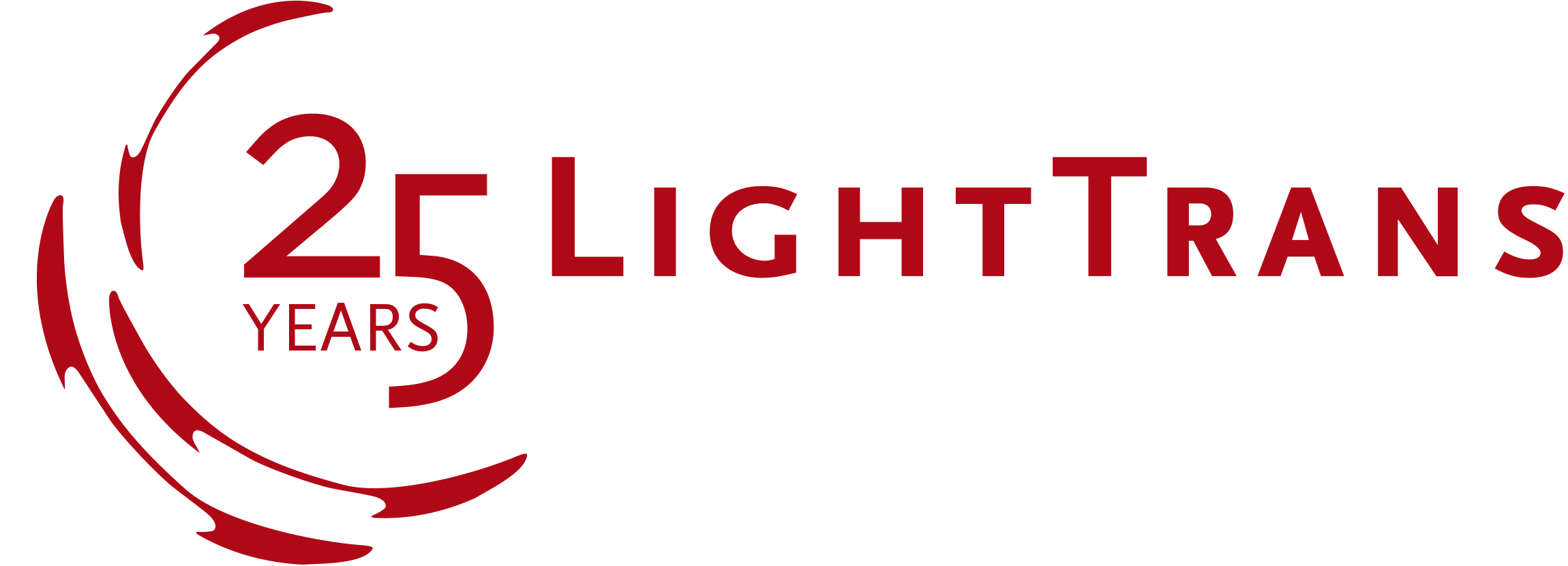What’s new in our Optical Modeling and Design Software?
Analysis of Lightguide Coupling
Lightguide structures play a role in various applications nowadays, from integrated optics to modern display technology. Coupling light out of or into the lightguide is therefore an issue of concern for all lightguide-based applications. Such tasks are usually realized with diffractive gratings, since they can be integrated with the lightguide using modern fabrication techniques. In VirtualLab Fusion, the coupling efficiency can be rigorously calculated with the Fourier modal method (FMM). As an example, we analyzed several selected slanted gratings, and the simulation results show good agreement with those from literature.
Read moreProgramming C# Modules
The customization potential of the optical modeling and design software VirtualLab Fusion is nowhere more evident than in the modules. While most other programmable items in the software present the logical constraint of pre-defined inputs and outputs, the modules (be they coded in C# or Visual Basic) offer the user total freedom of implementation. Below, we present an in-depth tutorial describing the basic workflow for how to program and use your own modules, with a simple example given in detail as illustration. We include a second, more advanced example in a more condensed format.
Read moreProgramming Custom Detectors
In some of our previous newsletters we already spoke of the potential for customization via programming, which is characteristic of the optical modeling and design software VirtualLab Fusion. In the current newsletter we present another programmable element: detectors. Full accessibility to the vectorial electromagnetic field, paired with the customizability, further increases versatility, facilitating the implementation of any detector function. Find below two documents that illustrate how to work with the Programmable Detector in VirtualLab Fusion: a detailed tutorial and an additional example in a more condensed format.
Read moreFiber-Coupling Lens Design and Tolerance Analysis
In many fiber-optics systems, a customized design of the coupling lens is often required so as to achieve a good fit with the given input field and working distance. VirtualLab Fusion provides not only the tools for the analysis of fiber-coupling efficiency, with the in-built Parametric Optimization function, but also enables an efficient design of the coupling lenses. In fiber optics, it is also known that coupling efficiency may be sensitive to e.g. misalignment of the components in the system. With the Parameter Run in VirtualLab Fusion, one can conveniently perform a tolerance analysis of such fiber-coupling systems and investigate the influence of different parameters.
Read morePerformance Evaluation of Fiber-Coupling Systems
Optical fibers are widely used in different applications; single-mode fibers especially play an important role in long-distance communications. Launching light into single-mode fibers can be a challenging task in practice. VirtualLab Fusion enables fast evaluation of fiber-coupling systems thanks to the physical-optics-based simulation techniques, fiber-related detectors, and many other helpful tools. For example, one can find the optimal working distance for coupling light into single-mode fibers, and compare the performance of different coupling lenses.
Read moreLightTrans awarded with the i-work-Business Award
Jena | 27 November
We are proud about winning the i-work Business Award.
Read moreBeyond Ray Tracing – Eindhoven & Garching
Eindhoven | Netherlands – 12 December
Garching | Germany – 15 January
Meet our experts and learn how to use VirtualLab Fusion
for the optical design tasks in your field of application.
Register for the seminars and indicate your areas of interest.
This information will be used to shape the content of the session.
Meet us at SPIE Photonics West
5 – 7 FEBRUARY 2019
SAN FRANCISCO, CALIFORNIA, USA
GERMAN PAVILION, BOOTH # 4545-46
* * *
This is a great chance for you to meet our technical experts and sales representatives for a discussion about the various application possibilities of the Fast Physical Optics Software VirtualLab Fusion.
In addition, we will give 3 talks and present 2 posters at the conference.
Read more










